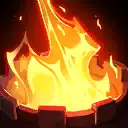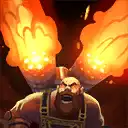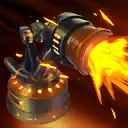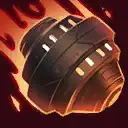When the Gods of Rome ride chariots across the sky, it is Vulcan that made them. When they reach for weapons to wield in battle, it is Vulcan that forged them. When the very earth rumbles and mountains erupt in searing flame, it is Vulcan’s rage that burns. Smith of the Gods, Vulcan crafts with fire and forge as an artist would with paint and brush.
As an infant, so hideous was Vulcan that his disgusted mother, Juno, cast him into the sea from the heights of Mount Olympus. So great was the fall, it smashed one of Vulcan’s legs, a wound from which he would never recover. Beneath the waves, a sea nymph, Thetis, rescued the child-god and raised him as her own. As Vulcan grew, he ventured to the surface and discovered fire and the art of smithing. His natural talents emerged and he forged wondrous jewels for his adopted mother.
Summoned to a gala on Mount Olympus, Thetis wore Vulcan’s glittering gifts, but when Juno discovered Vulcan had made them, she jealously demanded he return to Mount Olympus. Angrily, Vulcan refused. In his stead, he sent a magnificent throne of gold and gems that imprisoned Juno when she sat upon it.
For three days Juno was so entombed, and would have remained so had not Jupiter, Vulcan’s father, interjected. To Vulcan he offered an exchange, Juno’s freedom for the hand of Venus, the most beautiful Goddess of Love. Vulcan agreed.
Though his vengeance was served cold, the fire of spite still burns in Vulcan’s chest. Unable to truly forgive, he loses himself at the forge. None of the wondrous chariots, jewelry or weapons he crafts can ever fill the hurt in his heart, but each one is worthy of a God.













